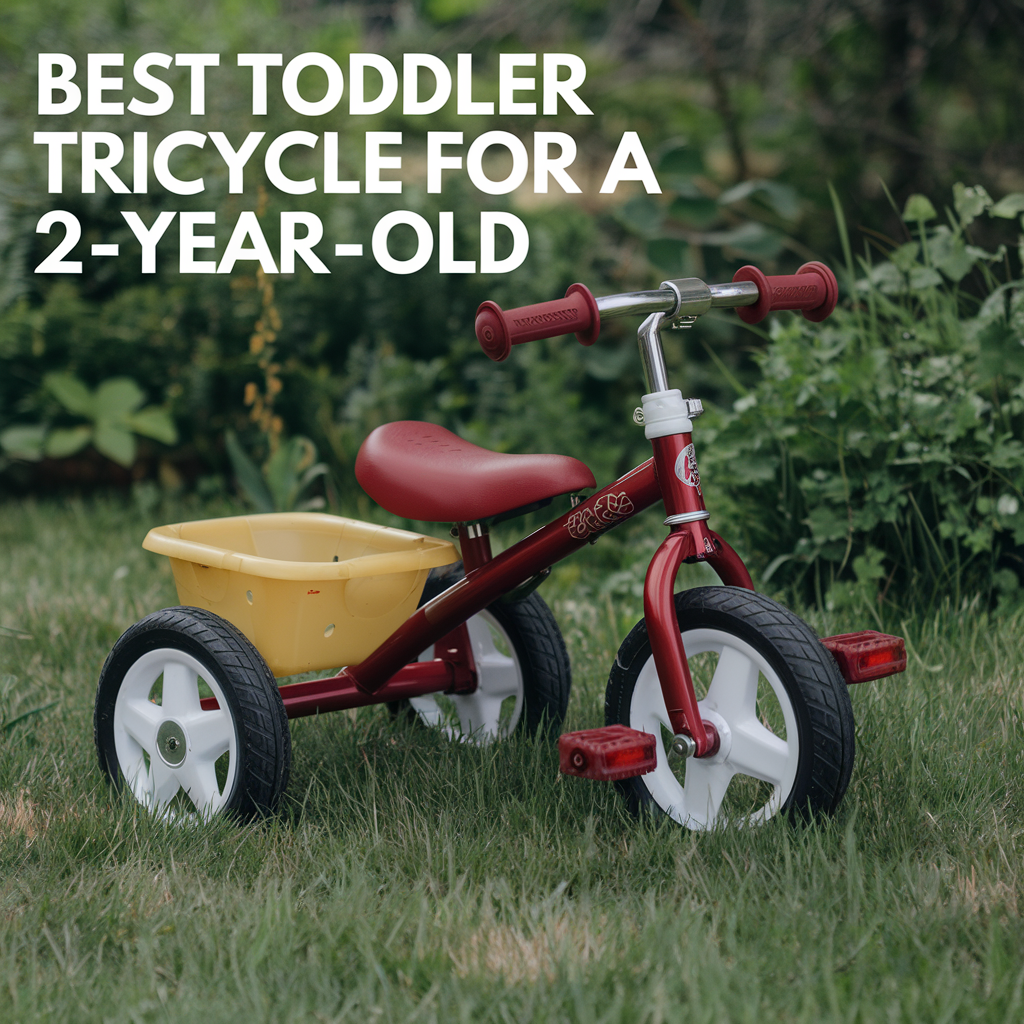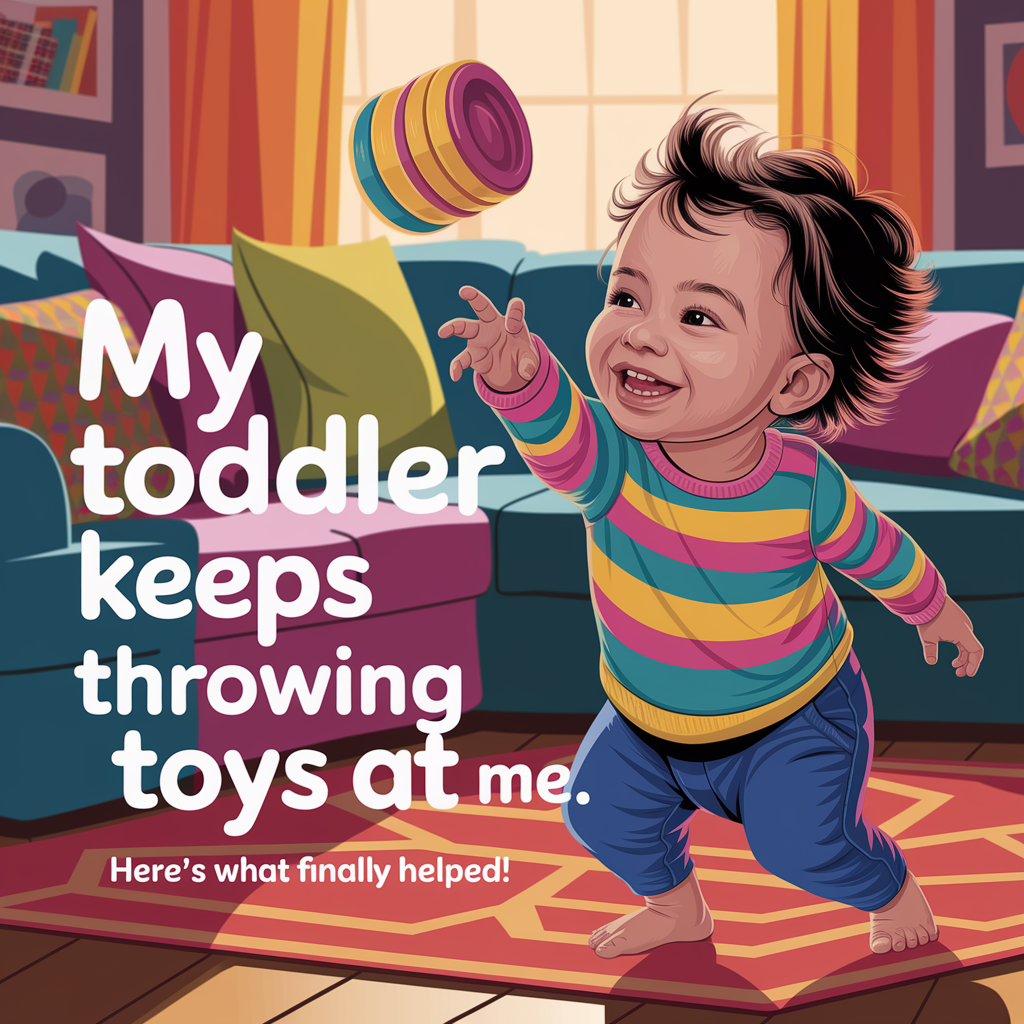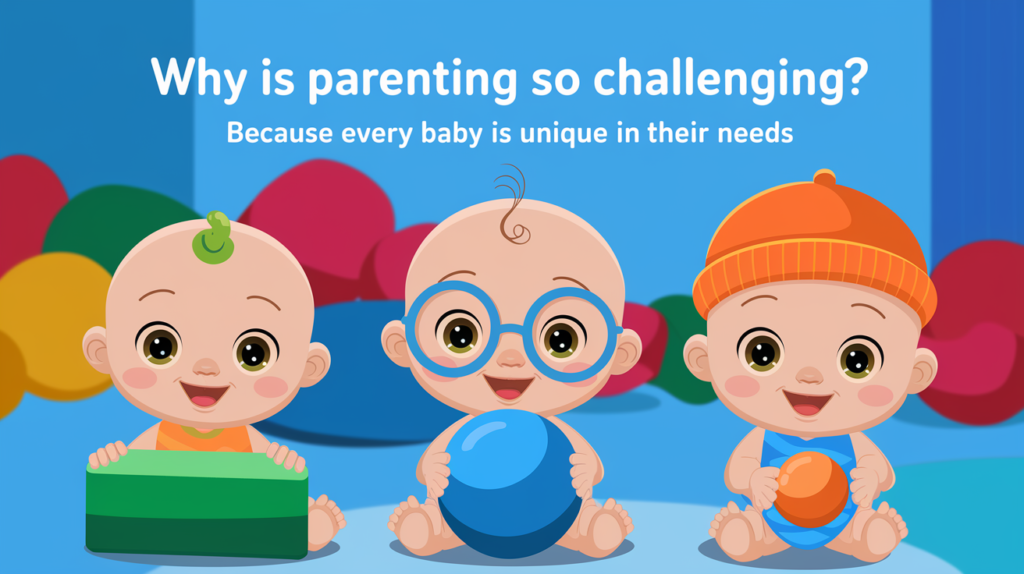
What Does It Mean When a Toddler Won’t Nap but Is Clearly Exhausted?
I remember watching my toddler rub their eyes, yawn like crazy, get clumsy from fatigue—and still refuse to nap like I was asking them to do hard labor. And I’d think, You are clearly exhausted… what is happening?!
This phase blindsided me. Naptime used to be a peaceful part of our day, and then one day, it just… wasn’t.
It became a power struggle. And not just once in a while—every single afternoon.
If your toddler won’t nap but is obviously tired, it doesn’t mean they don’t need sleep. It usually means they’re too overtired to settle, too stimulated to wind down, or transitioning out of needing a regular nap—and their body and brain are totally confused.
I learned quickly that when naps go out the window, bedtime chaos usually creeps in right behind it. If that’s sounding familiar, this breakdown of bedtime meltdowns will feel painfully accurate.

Why Is Nap Resistance So Common in Toddlers?
Once I stopped blaming myself, I got curious—and I found out nap resistance in toddlers is incredibly normal. It’s frustrating, but it’s not a sign something’s wrong. It’s a developmental shift, and it happens to almost every family at some point.
Here’s why toddlers often fight naps even when they desperately need one:
1. Fear of missing out (FOMO is real)
Toddlers know the house doesn’t shut down when they nap. If they hear siblings playing or life continuing, they’ll do anything to stay part of the action.
2. They’re overtired and can’t settle
It sounds backward, but overtired toddlers get wired. Their bodies are exhausted, but their brains go into overdrive. Understanding how exhaustion shows up emotionally helped me stop seeing my child’s crankiness as defiance—and start seeing it as a need for rest.
3. They’re testing independence
Refusing to nap is one of the first things a toddler can control. It’s their way of saying “I make the rules now,” even if they’re falling over from fatigue.
4. Developmental leaps or changes in routine
Sometimes sleep regressions hit right as kids are learning something new—language bursts, potty training, or even just switching rooms. When our routine shifted even slightly, my toddler’s naps went completely off track.
5. They’re not tired yet
Sometimes we try to force naps out of habit—but toddlers may start needing later or shorter naps as they grow. Adjusting our schedule helped so much once I realized he wasn’t ready to nap when I wanted him to.
This nap battle was one of the most confusing parts of parenting a toddler for me—but it made more sense once I dug into the emotional and sensory side of toddler behavior. This guide on toddler behavior patterns gave me a better lens to read those confusing cues.

Signs Your Toddler Is Overtired (But Fighting Sleep Anyway)
At first, I missed the signs. I thought if my kid was running in circles or bouncing off furniture, that meant they weren’t tired. Turns out? That was exhaustion talking—just in toddler language.
When a toddler won’t nap, it doesn’t always mean they’re not tired. In fact, it’s often the opposite. They’re so wiped out, they literally can’t calm themselves enough to fall asleep.
Here’s what overtired looked like in our house (and maybe yours too):
1. Hyperactivity instead of yawning
He’d run around like a maniac—then collapse into tears over the wrong cup.
2. Meltdowns over tiny things
The banana broke in half? Full-blown crisis. These tantrums that show up out of nowhere are often a sign their little brain is just… done.
3. Easily frustrated with everything
Blocks won’t stack? Game over. He couldn’t even handle simple toys when he was overtired.
4. Rubbing eyes but still fighting it
This one drove me nuts. He’d rub his eyes and yawn, then yell “NO NAP!” like I had suggested torture.
5. Waking up more at night
Skipping naps didn’t just mess up the afternoon—it wrecked bedtime, too. And when that happened, we’d get more overnight wake-ups and more crankiness the next day, creating a never-ending loop.
That’s when I finally started adjusting our routine to meet him where he was—not where the books or schedules said he should be. And yeah, it took trial and error.
But when I finally saw overtired behavior for what it really was, I stopped pushing naps so hard—and started working with his energy, not against it.

My Toddler’s Nap Struggles—What I Noticed (And What Didn’t Work)
Let me be real: I tried everything to make naps happen.
I darkened the room. I played white noise. I rocked him, laid beside him, gave up and sat on the floor quietly for 45 minutes.
None of it worked.
And here’s why: he was already past the point of sleep by the time I was trying to make it happen. He needed a slower wind-down and a different kind of rhythm—not a magic trick.
Here’s what didn’t work for us:
- Waiting until he was visibly cranky to start nap time
By then, it was too late. - Threats or bribes
Saying “you won’t get a treat if you don’t nap” just made him more anxious—and way less likely to rest. - Trying to stick to the same schedule every day
Toddlers aren’t robots. His body clock shifted, and our routine had to shift with it.
What did help?
- Starting quiet time earlier
Even if he didn’t fall asleep, resting in a calm room helped prevent full-on nap refusal. - Letting go of the idea that every nap had to be “successful”
Sometimes quiet rest was enough—and often led to a better bedtime rhythm, which was a huge win. This bedtime emotional rollercoaster breakdown helped me see the connection between naptime resistance and night-time blowups more clearly than ever.
Next up: we’ll talk about what age toddlers typically stop napping—and how to tell when your child is really ready.

What Age Do Toddlers Typically Stop Napping?
I kept Googling this exact question during our nap strike season: “What age do toddlers stop napping?” Hoping someone would say, “Oh, don’t worry—they’ll nap again tomorrow.” (Spoiler: they didn’t.)
Most toddlers drop their last consistent nap somewhere between age 3 and 5. But like everything else in parenting, there’s no one-size-fits-all answer.
Here’s what I learned while navigating this:
Some kids drop naps early (even at 2)
This is usually tied to early risers, high-energy kids, or toddlers who just can’t settle during the day no matter what. That doesn’t mean they don’t need rest—it just means it might show up in a different way.
Some still nap well past age 4
My niece napped until almost 5 and loved it. Her little body craved that midday recharge.
It’s not always a clean break
For us, naps slowly faded. One day he’d nap, the next two days he wouldn’t. Sometimes he’d nap at daycare but not at home. That in-between period lasted months, and I had to stop seeing it as “failure” when he skipped a day.
The most helpful thing I did was shift our goal from napping to resting.
That took the pressure off, and sometimes—surprise!—he’d actually fall asleep.
And when he didn’t? That quiet break still helped regulate his mood for the rest of the evening. If your toddler’s mood swings after skipping naps have you spiraling, I’d suggest checking out how exhaustion and daily chaos affect kids (and parents too). It reminded me that I wasn’t the only parent feeling wiped.

How I Handled the Nap Strike Without Losing My Mind
Okay, “without losing my mind” is a little generous. But here’s what helped me survive the nap strike and stay (mostly) sane:
1. We created a “quiet time” routine
Same time every afternoon, even if he didn’t sleep. Soft music, a cozy blanket, a few books. It gave both of us a break.
2. I stopped saying the word “nap”
No joke—just changing my language helped. “Time to rest” or “Let’s do quiet time” got way less pushback.
3. I set realistic expectations
Instead of getting mad when he didn’t sleep, I started celebrating the win of any downtime. Even 20 minutes of stillness helped his brain reset.
4. I gave him options within boundaries
He could pick which stuffed animal came with him or which pajamas to wear—but rest time itself wasn’t optional. This kept him feeling in control without losing structure.
5. I got rid of nap pressure for myself
I stopped obsessing over sleep charts and “shoulds.” Once I accepted that this was a weird in-between phase, I could relax a little—and so could he.
And when things got rocky again at night because he didn’t nap? This bedtime survival guide saved my sanity more than once.
This phase is messy. It’s loud. It tests your patience like crazy.
But it’s also temporary—and you don’t have to white-knuckle your way through it alone.

Toddler Sleep Needs by Age: Are You Expecting Too Much?
One of the most eye-opening things I realized during our nap strike phase was this: I was expecting way too much sleepfor my kid’s age and stage. I kept thinking he should nap because he always had—but I hadn’t adjusted my expectations as he grew.
Here’s what I learned about typical toddler sleep needs (based on both research and real-life experience):
Ages 1–2 years old
- Total sleep: 11–14 hours in 24 hours
- Naps: Usually 1–2 naps per day
At this age, a solid mid-day nap is still crucial. If naps are getting skipped, it’s often due to stimulation, teething, or transitions—not readiness to drop them.
Ages 2–3 years old
- Total sleep: 10–13 hours in 24 hours
- Naps: Usually one long nap or two shorter ones
This is when many toddlers start fighting naps, even if they still need them. That’s where we were. And if your kid is in this window and starting to resist? You’re not alone.
Ages 3–5 years old
- Total sleep: 10–12 hours in 24 hours
- Naps: May stop entirely or shift to quiet rest time
By 4 or 5, lots of kids are dropping naps altogether—especially if they’re sleeping through the night.
What helped me the most was letting go of the schedule I had in my head and tuning into his actual needs. When I watched for sleep cues instead of the clock, I noticed more natural rhythms—like when he’d get sleepy mid-morning after a busy play session or crash early on a no-nap day.
If you’re in that in-between zone, this article on sleep cues and baby-to-toddler transitions has a helpful perspective on how our kids’ bodies shift as they grow—and how we can grow with them instead of fighting against it.

What Helps an Overtired Toddler Actually Wind Down?
This right here was the golden question. Because when a toddler won’t nap, and they’re bouncing off the walls even though they’re clearly wiped out, you need more than “just try harder.”
Here’s what actually helped us get through nap refusal without everyone losing it:
1. A slow wind-down routine
Trying to switch from high-energy play straight into sleep? It didn’t work. We started building in “quiet time” cues about 30–45 minutes before nap. That meant dimming lights, turning off background noise, and switching to calm activities like puzzles or books.
2. Calming sensory tools
Soft blankets, weighted stuffed animals, white noise—all of those helped signal rest. Sometimes even dimming the lights or pulling blackout curtains made a big difference.
3. Soothing connection before separation
I used to just drop him off in his room and expect him to settle. Instead, I started spending 5–10 quiet minutes just lying next to him or rubbing his back before leaving. That little dose of connection helped ease the separation.
4. No screens at least an hour before nap
The rare times I gave in to a tablet before rest time? Total disaster. The blue light stimulation totally canceled out his sleep drive. Once I cut that out, winding down got way easier.
5. Offering quiet time instead of pushing a nap
This one changed everything. We treated rest as a break—not a punishment. Some days he’d nap. Some days he didn’t. But both outcomes were okay.
When things got rough, I reminded myself that toddler sleep struggles weren’t always about behavior—they were often about underdeveloped regulation skills and emotional overload. This meltdown guide gave me real tools for calming things down before they spiraled.

When to Worry About Nap Refusal
Most of the time, when a toddler won’t nap, it’s frustrating—but normal. However, there are times when nap refusal might point to something more than just strong-willed independence or a transitional sleep phase.
Here’s what made me pause and ask, “Is this still normal?”—and what signs might be worth checking in on:
1. Constant crankiness all day, every day
If your toddler is never rested, frequently upset, and showing little to no recovery with quiet time or nighttime sleep, their sleep routine might need more serious adjusting.
2. Falling asleep at random times
My child once fell asleep at the dinner table—head down in mashed potatoes. If they’re crashing mid-meal or during short car rides, they’re likely not getting enough rest overall.
3. Big emotional outbursts at the same time daily
Every day around 2 p.m., it was meltdown city in our house. That consistent crash time helped me see that rest wasn’t just a suggestion—it was still a need.
If your afternoons are full of explosive tantrums, this post on navigating emotional overload helped me understand that sometimes a skipped nap affects more than just mood—it disrupts everything.
4. Poor night sleep or constant night waking
Ironically, skipping naps doesn’t always lead to better nighttime sleep. In fact, overtired toddlers may wake more often, fall asleep harder, and start resisting bedtime too.
That’s when I learned how connected naps and nights really are. And if bedtime is feeling like another battlefield, this story about bedtime chaos is worth a look—you’ll feel seen.
5. You’re worried, and your gut says something’s off
You don’t need a milestone chart to tell you when your child’s sleep habits feel unhealthy. If your gut says it’s more than just a nap strike, bring it up to your pediatrician. Sometimes sleep resistance can be tied to sensory issues, anxiety, or developmental shifts that need support.
Nap resistance isn’t always a phase. And if your toddler is completely out of rhythm—day and night—it’s okay to ask for help and explore other strategies.

Encouragement for Parents in the Middle of Nap Drama
If you’re in this season, I see you.
You’re googling nap tricks while holding a screaming toddler who clearly needs sleep but insists they’re fine. You’re rewarming your coffee for the third time, questioning everything. And you’re probably wondering, “Is this just us?”
It’s not.
Nap battles are one of the most common parenting struggles, and yet somehow no one tells you how mentally draining it is until you’re in it.
You’re not doing anything wrong. Your child isn’t broken.
They’re just growing—and resisting—and learning—and changing. And yeah, it’s exhausting for everyone.
You’re not alone in this stage. If you need a break from the chaos and a reminder that this too shall pass, this honest look at parenting fatigue might feel like a warm hug.
And if today’s nap fails? That’s okay.
You gave your toddler space to rest. You showed up. You tried again.
That’s good parenting—even if the nap never happened.

As an Amazon Associate we earn from qualifying purchases through some links in our articles.



